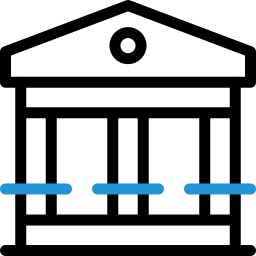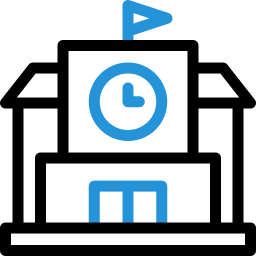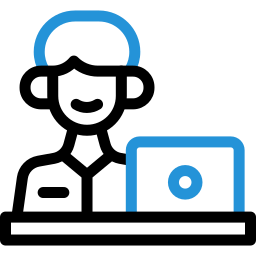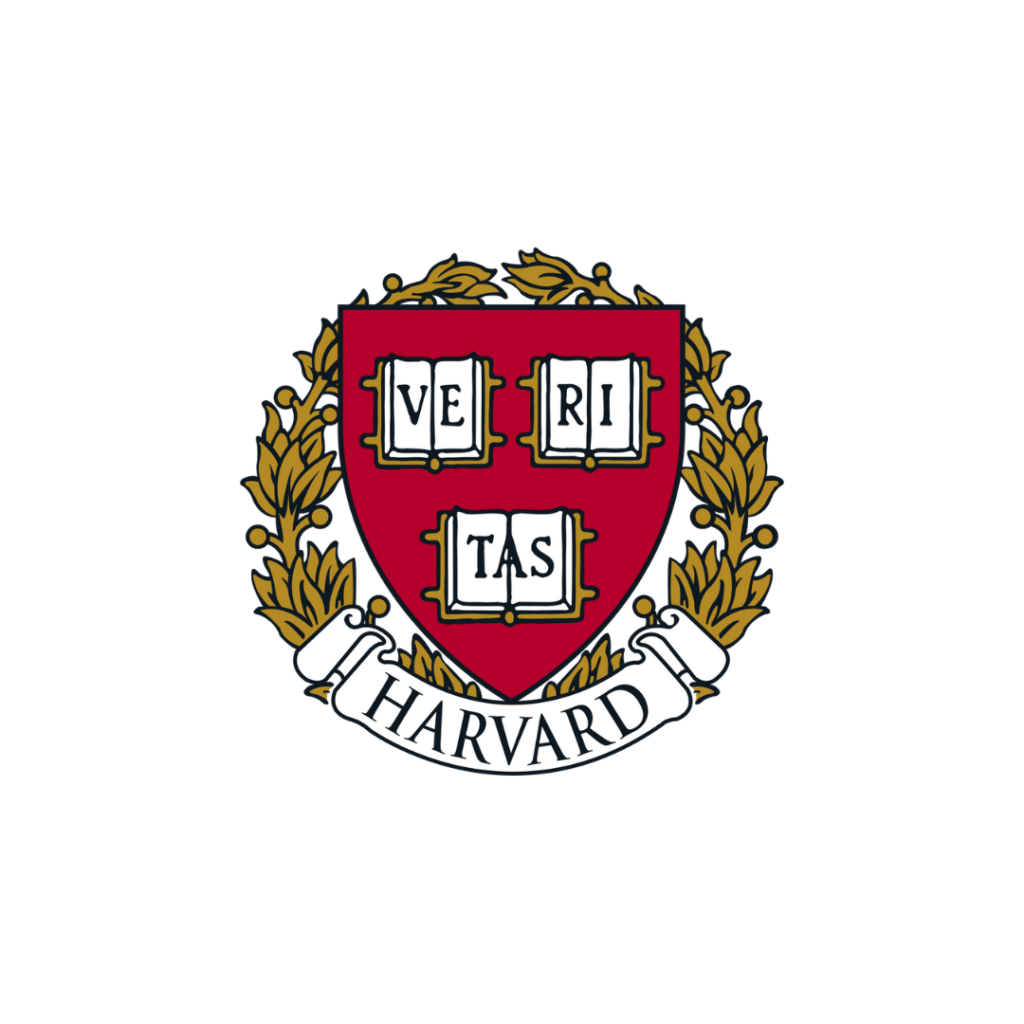Ithaca, New York
Cornell University exemplifies a commitment to academic excellence, interdisciplinary learning, and community engagement. With over 4,000 courses across more than 100 academic departments, Cornell offers a diverse array of programs that encourage students to explore various fields, fostering both intellectual growth and personal development.
As a private institution with a public mission, Cornell is one of the few Ivy League universities to receive state funding, reflecting its dedication to accessible education.
This unique status enables the university to offer a wide range of programs, including those in agriculture, engineering, and hotel administration, that directly benefit society.
Cornell’s commitment to sustainability is evident through initiatives like the Atkinson Center for a Sustainable Future, which supports research and projects aimed at addressing global environmental challenges.
The university’s main campus in Ithaca, New York, is renowned for its natural beauty, featuring gorges, waterfalls, and the expansive Cornell Botanic Gardens, providing students with a serene environment that enhances their academic experience.
In recent years, Cornell has expanded its global presence with the establishment of Cornell Tech on Roosevelt Island in New York City. This graduate campus focuses on technology and applied sciences, fostering innovation and entrepreneurship.
Beyond academics, Cornell offers a vibrant campus life with over 1,000 student-run organizations, including clubs for debate, dance, and entrepreneurship, ensuring that students have ample opportunities to engage in extracurricular activities that complement their studies.
Through its dedication to academic excellence, sustainability, and community engagement, Cornell University continues to provide a comprehensive and enriching educational experience for its students.
Moreover, Cornell’s impressive financial aid program ensures that education is accessible to all students, regardless of their financial background. The university has made significant strides in offering generous need-based aid packages, reducing financial barriers for students who otherwise might not have the opportunity to attend such a prestigious institution.
With an endowment of over $10 billion, Cornell continues to invest in programs that enhance student success, including scholarships, research opportunities, and state-of-the-art facilities. This commitment to making education affordable enables a diverse and talented student body to flourish.
Finally, Cornell’s strong alumni network, with over 250,000 members globally, provides invaluable career support for graduates. The network fosters connections that help students and alumni navigate their professional journeys, from securing internships to landing jobs in top industries.
Cornell University offers over 80 undergraduate majors and a variety of interdisciplinary opportunities across its diverse colleges and schools, fostering an environment where students with a wide range of interests can thrive. The university is organized into several prestigious colleges, including:

College of Engineering
Rigorous education in areas ranging from mechanical and electrical engineering to bioengineering and applied physics.

School of Hotel Administration
One of the world’s leading hospitality programs, focusing on management, hospitality, real estate, and the business of leisure.

College of Arts and Sciences
It provides a foundation for those interested in pursuing careers in research, education, or the arts.

Cornell Law School
Known for producing influential legal professionals and offering strong programs in public interest law, business law, and international law.

College of Agriculture and Life Sciences
A leader in research and education in areas like agriculture, environmental sciences, and life sciences
Cornell also encourages students to explore dual-degree and joint programs across its diverse schools and colleges, giving them the flexibility to customize their education and create a path that aligns with their career aspirations. Whether interested in technology, business, the arts, or social sciences, students have the resources to tailor their academic journey to their goals.
Cornell University employs a selective admissions process to identify students who will excel both academically and personally. Here’s a breakdown of the key details for applying to Cornell:
Cornell University offers a diverse array of academic disciplines, with several programs distinguished by their exceptional reputation and demand. Below are six of the most sought-after subjects that attract students globally:
Renowned hospitality management program with industry prospects.
Top-ranked engineering programs in various disciplines.
Rigorous MBA program with successful alumni network.
Emphasizing creative design in architecture and urban planning.
Largest college offering diverse studies in humanities and sciences.
Programs focusing on global challenges in sciences.

Since 2014, Essai has worked with hundreds of students with its end-to-end intensive counselling program.
In that time, our students have earned:
Cornell University seeks applicants who demonstrate exceptional academic performance and active engagement in extracurricular activities. While standardized test scores are optional through 2025, strong SAT or ACT scores can enhance an application. In response to recent changes in affirmative action laws, Cornell has introduced a new essay prompt focusing on applicants’ life experiences and the communities that have shaped them, aiming to promote diversity through non-racial metrics.

Cornell University offers a vibrant campus life that extends beyond academics. With over 1,000 student organizations, including sports teams, cultural clubs, and academic societies, students have ample opportunities to engage and develop their interests.
The university’s residential system fosters close-knit communities, enhancing the living and learning experience.
Cornell’s campus hosts a variety of events, such as lectures by distinguished speakers, art exhibitions, concerts, and hackathons, creating a dynamic environment where ideas and cultures converge.
Students can also participate in community service projects in the Ithaca area, offering real-world impact opportunities.
Sports are integral to campus life, with Cornell boasting 36 varsity teams and a tradition of intense Ivy League rivalries.
Whether as an athlete or a fan, there’s no shortage of school spirit.
Cornell University has produced distinguished individuals across various fields, exemplifying leadership and innovation.

Political Leaders
Cornell alumni have held significant political positions, including Lee Teng-hui, President of Taiwan from, and Tsai Ing-wen, the first female president of Taiwan.

Tech Innovators
Alumni like Jon Rubinstein, credited with developing the iPod, and Robert Tappan Morris, who developed the first computer worm on the Internet, have made significant contributions to technology.

Nobel Laureates
Cornell boasts 52 Nobel laureates affiliated with the university, including alumni and faculty who have made groundbreaking contributions in physics, chemistry, and physiology or medicine.

Entrepreneurs and CEOs
Graduates have founded or led influential companies, such as Sanford Weill, former CEO of Citigroup, and Irene Rosenfeld, former CEO of Kraft Foods, contributing to global business landscapes.

Scientific Breakthroughs
Cornell research has led to medical advances and innovations, including the development of the pacemaker by alumnus Wilson Greatbatch and the Heimlich maneuver by Henry Heimlich.

Social Reformers
Faculty and alumni have been central to social movements, shaping policies that address inequality, climate change, and human rights worldwide.
Getting into Cornell University is a dream for many students, but the admissions process is competitive and selective. By understanding the key requirements and preparing strategically, you can enhance your chances of being accepted into this prestigious Ivy League institution.
Cornell looks for students who have consistently high academic performance. Aim for a GPA of 3.8–4.0 and take rigorous courses, including AP or IB classes, to show your dedication and readiness for Cornell’s academic challenges.
While Cornell is test-optional, high scores can strengthen your application. Aiming for SAT scores between 1450–1560 or ACT scores between 33–35 can make you a more competitive candidate.
Cornell values applicants who demonstrate leadership, dedication, and impact in their extracurricular activities. Focus on a few activities that align with your passions and showcase your commitment over time, whether in community service, sports, the arts, or academic clubs.
Ask teachers who know you well to write detailed, insightful recommendations. Cornell requires two recommendation letters, so choose teachers who can highlight your academic strengths, character, and contributions.
Your personal essay is your chance to show who you are beyond grades and scores. Cornell appreciates essays that reflect your personal growth, values, and aspirations. Be authentic and share experiences that have shaped your perspective and goals.
Show that you are a good fit for Cornell’s community and culture. Research Cornell’s academic programs, clubs, and values, and use this knowledge in your application to illustrate why Cornell is your ideal school and how you plan to contribute.
Getting into Cornell requires academic excellence, well-rounded achievements, and a genuine passion for learning and leadership. By preparing thoroughly and presenting your best self, you can maximize your chances of becoming part of Cornell’s distinguished student body.
Cornell University seeks applicants who embody specific personal qualities that align with its values and academic environment.
Cornell seeks students who demonstrate a natural curiosity and a genuine passion for learning across diverse subjects. Applicants who embrace multidisciplinary exploration and are not afraid to challenge conventional ideas or push the boundaries of knowledge are highly valued.
Cornell values students who think creatively and take initiative to bring their ideas to life. Whether through launching a startup, developing new projects, or creating social innovations, Cornell looks for students who are driven to make an impact through entrepreneurship and innovation.
Cornell thrives on collaboration across disciplines and values students who engage in meaningful partnerships and collective efforts. Being part of the Cornell community means working with others to achieve common goals, whether in research, projects, or service.
Cornell looks for students who can adapt to new environments, tackle challenges with flexibility, and are open to diverse perspectives. Those who demonstrate resilience in the face of change and actively seek diverse experiences to broaden their worldviews fit well within Cornell’s academic culture.
Cornell values applicants who are passionate about sustainability and social responsibility. Whether through environmental advocacy, leadership in social justice movements, or projects focused on improving the world, applicants who aim to drive positive change are highly regarded.
Cornell is committed to producing ethical leaders who are not only academically strong but also guided by principles of integrity and responsibility. The university values applicants who demonstrate strong moral character, are accountable for their actions, and aspire to lead with fairness and empathy.
Cornell University is looking for students who are intellectually vibrant, socially responsible, adaptable, and eager to contribute positively to both the university and the world. By highlighting these traits in your application, you can show that you would be an excellent fit for the diverse and dynamic environment at Cornell.
Join Cornell’s community of intellectual explorers, gaining access to top faculty, cutting-edge research, and a library with over 10 million volumes.






















Cornell offers a mix of Ivy League prestige and specialized programs in fields like agriculture and hotel management.
Cornell looks for strong academics, leadership, and passion for your field. It’s test-optional through 2025.
Cornell has a 9:1 student-faculty ratio, allowing for personalized learning.
Cornell has a diverse student body from all 50 states and over 120 countries.
Cornell offers extensive libraries, research labs, career services, and mental health support.
Cornell excels in business, engineering, agriculture, hotel administration, and life sciences.
Yes, Cornell encourages undergraduate research across various disciplines.
Cornell offers extensive libraries, research labs, career services, and mental health support.
Cornell has over 1,000 student organizations, including academic, cultural, and athletic clubs.
Cornell’s Ivy League status and strong alumni network open doors to top job opportunities globally.

